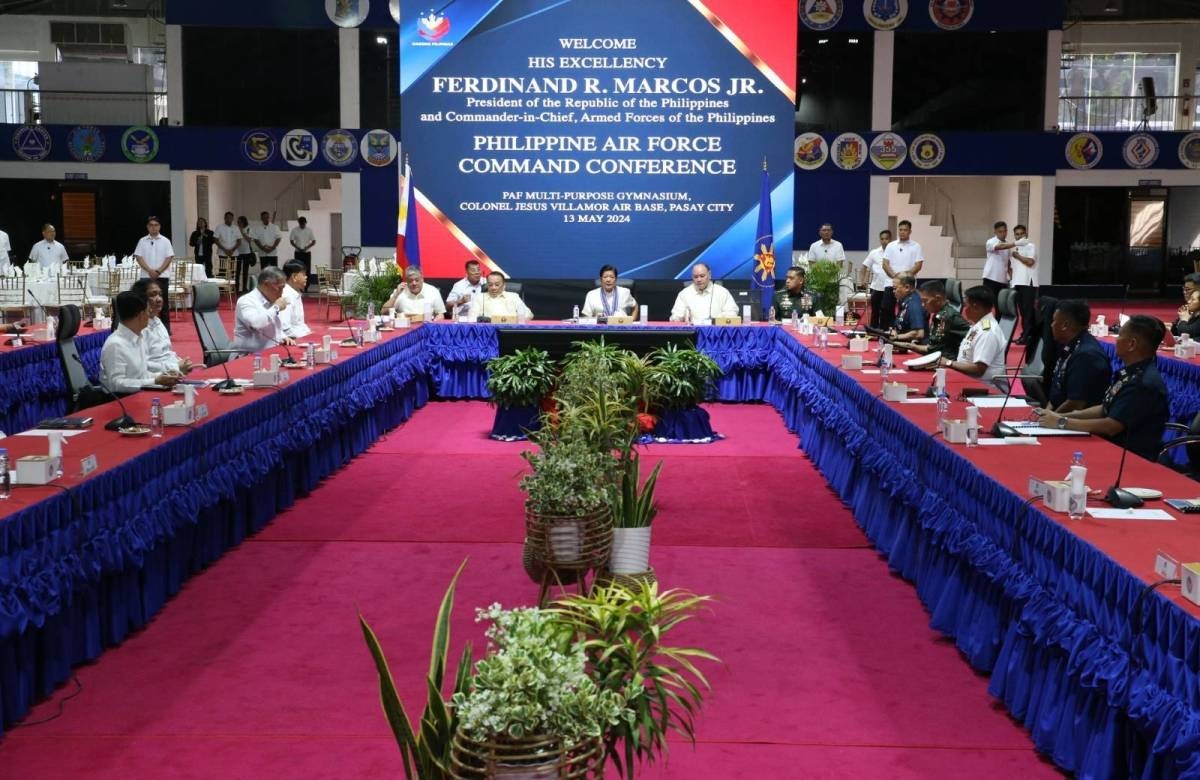President Ferdinand Marcos Jr. Calls for a Stronger Philippine Air Force
In a recent command conference with the military’s top brass at the Philippine Air Force (PAF) headquarters in Villamor Air Base, Pasay City, President Ferdinand Marcos Jr. expressed his desire for a “stronger” PAF to defend the country’s sovereignty, territory, and development. The president’s call for a bolstered air force comes as part of his commitment to enhancing the nation’s defense capabilities and improving disaster response efficiency.
During the meeting, President Marcos was briefed on the PAF’s recent activities, plans, and proposed projects. While specific details of the discussion were not disclosed, Presidential Communications Office Secretary Cheloy Garafil confirmed that the president provided guidance and instructions on certain programs aimed at boosting the air force’s capabilities.
As the Philippines’ first line of defense against threats, the PAF plays a vital role in safeguarding the nation’s security. President Marcos recognizes the importance of a robust air force in maintaining the country’s sovereignty and protecting its interests. By investing in modernization efforts and continuous support, the president aims to ensure that the PAF becomes a truly capable, credible, and sustainable force.
Commitment to Modernization and Capabilities Enhancement
The Philippine Air Force, under the leadership of PAF Chief Lt. Gen. Stephen Parreño, has been actively working towards modernization and enhancing its capabilities. In the command conference, senior PAF commanders briefed President Marcos, senior Malacañang officials, and Defense Secretary Gilberto Teodoro Jr. on the air force’s recent activities and plans.
The PAF expressed its gratitude for the president’s continuous support in their modernization efforts. This support is crucial in enabling the air force to meet the nation’s evolving security challenges and maintain a strong defense posture. By investing in advanced technologies, training, and infrastructure, the PAF aims to become a force that not only meets the nation’s needs but also deserves the trust and confidence of its people.
Ensuring National Security and Disaster Response Efficiency
The Philippines, being an archipelagic nation, faces various security threats and natural disasters. As the primary aerial defense force, the Philippine Air Force plays a critical role in safeguarding the nation’s security and providing disaster response support.
President Marcos recognizes the importance of enhancing the PAF’s efficiency in disaster response. By equipping the air force with the necessary resources and capabilities, the government aims to improve the speed and effectiveness of emergency operations during times of crisis. This includes providing timely assistance in search and rescue missions, evacuations, and delivering essential supplies to affected areas.
Moreover, the president’s focus on strengthening the air force’s disaster response capabilities aligns with the country’s commitment to international standards and best practices. By contextualizing potentially unclear parts of the content, we can ensure that readers from different countries understand the significance of a robust air force in disaster management and response.
It is important to note that the command conference did not explicitly mention discussions regarding the alleged involvement of retired and active military and police officers in an attempt to remove President Marcos from power. While the content does not provide details on this matter, it is crucial to maintain transparency and address any concerns related to the country’s political landscape.
Overall, President Ferdinand Marcos Jr.’s call for a stronger Philippine Air Force reflects his commitment to national security, territorial defense, and disaster response efficiency. By investing in modernization efforts, enhancing capabilities, and providing continuous support, the government aims to ensure that the PAF becomes a capable and sustainable force that meets the nation’s needs and deserves the trust of its people.
Source: The Manila Times







